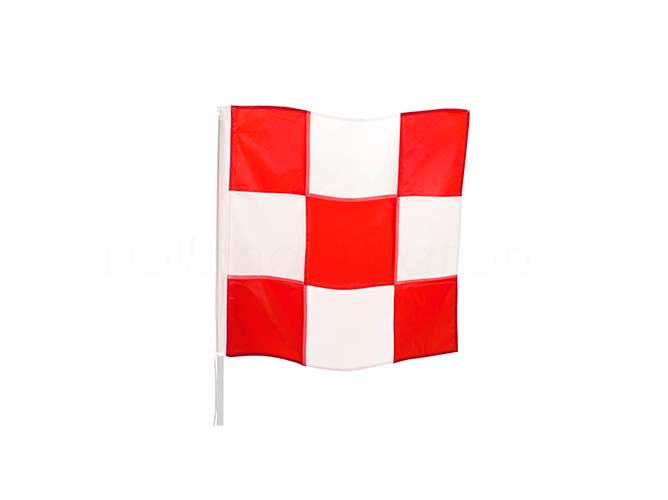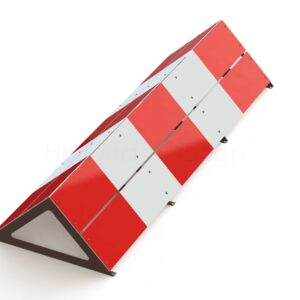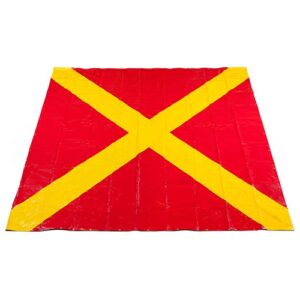Description
Obstruction Flag – Holland Aviation
Introducing the Holland Aviation Checkered Red/White Obstruction Flag in a 90x90cm size. In detail expertly made from durable Polyester (PU coated) material. This flag serves as a vital safety tool in aviation and transportation environments. Its distinctive red and white checkered pattern ensures high visibility, effectively marking potential hazards and obstructions on runways, taxiways, and other critical areas. Crafted with quality materials, this flag is durable and suitable for various weather conditions. Enhance safety protocols and prevent accidents with the reliable Holland Aviation Obstruction Flag.
Obstacle Safety
Obstruction flags are used in airports as an essential safety measure to prevent accidents. And to ensure the smooth flow of operations within the complex and dynamic environment of an aviation facility. These flags serve several important purposes, contributing to the overall safety and efficiency of airport activities:
- Enhanced Visibility: Obstruction flags are highly visible due to their bright colors, often fluorescent orange or red. They are strategically placed near stationary or moving objects that could pose a hazard to aircraft, ground vehicles, or personnel. This enhanced visibility helps pilots, ground crew, and drivers to easily identify and steer clear of potential obstacles.
- Preventing Collisions: Airports are busy with a wide variety of vehicles, aircraft, and equipment moving across runways, taxiways, and ramps. Obstruction flags are used to mark stationary obstacles such as construction equipment, maintenance vehicles, and other ground support equipment, reducing the risk of collisions between aircraft and objects on the ground.
- Safety During Maintenance: During maintenance and servicing of aircraft, various equipment, and tools might be temporarily placed on the apron or taxiway. Obstruction flags ensure that these items are clearly marked and easily visible, preventing aircraft from accidentally colliding with them during taxiing or other ground movements.
- Construction and Temporary Obstacles: Airports often undergo construction, expansion, or maintenance activities. Obstruction flags are employed to designate construction zones, closed taxiways, or other temporary obstacles. This helps pilots and ground personnel navigate safely around these areas and prevents unintended runway incursions.
Overall, obstruction flags play an important role in minimizing the risk of accidents, improving situational awareness, and maintaining safe ground operations within the complex and dynamic environment of an airport. Their strategic placement and high visibility contribute to the safety of aircraft, passengers, and personnel.
All prices are exclusive of VAT.



